Challenges and Opportunities of Single Mother: An Islamic Perspective
Aminah bint Wahb, the mother of the Messenger Muhammad (ﷺ) was a single mother as his father passed away before his birth. In Islamic history, the exemplary model of a single mother is Sayyidat Maryam (a.s.), who gave birth to the Prophet ʿĪsā (a.s.). She is the foremost model of a virtuous woman and the only woman with a Quranic chapter named after her. The 19th chapter in the Quran is named Maryam. The Quran says {“O Maryam! Surely Allah has selected you, purified you, and chosen you over all women of the world} (Āl-ʿImrān: 42). Likewise, Muḥammad ibn Idrīs al-Shāfiʿī, the founder of Shāfiʿī madhhab, was brought up by a single mother.
However, the way of a single mother is not all roses. Her struggle is real. The graph of single mothers is going up. The UN Women report says that 13 million single mothers are in India, for example. Globally, eight of every ten lone-parent households are headed by women. A mother’s strain, pain and struggle are escalated when her life is transitioned to single motherhood, for which she might be completely unprepared. It may fill the darkness in her life, placing her at the edge of several challenges. It takes a toll on her mental health. A vast vacuum may abruptly emerge in her way, lacking a spouse to share the happiness and sad moments. “Happiness shared is doubled, and sadness shared is halved”. She may face challenges in undertaking the burden of responsibilities. For many, single motherhood is not a willful choice.
For some, it may cause deadly loneliness, isolation, melancholy and depression and force them to remain silent in a closed world. It will affect their relationship with their children, family, friends and relatives. In the worst scenarios, some may think of ending their life to eliminate the endless cycle of struggle. It is not the case for every single mother, but some amount of distress touches every, and it varies. Some overcome all the troubles and return to everyday life, having a sense of contentment and satisfaction.
The worry will not help solve the problem. The acts of ‘strengthening the relationship with Allah’ will solve all difficulties. Allah says {So be patient with your Lord’s decree, for We are indeed watching over you} (al-Ṭūr: 48). After the patience, He asks {Glorify (Tasbīḥ) your Rabb with His praises when you wake up. Extol His glory at night, and also as the stars fade away.} (al-Ṭūr: 48-49). The Tasbīḥ, particularly at night and early dawn, is an effective pill to cure disturbing feelings. The prayers and glorification of God at the part of the night when worldly life is at a standstill and the glorious hour of early dawn are special.
In the midst of suffering and enormous pain, Sayyidat Maryam said “Ah! would that I had died before this! Would that I had been a thing forgotten and out of sight!” (Maryam 23). But she then fought against this mental state with her unwavering faith and sailed through the ocean of life to become a unique female figure in entire human history. Likewise, for some, the lone life may become a new beginning of fresh life, as Allah said in the chapter of divorce, {And whoever is mindful of Allah, He will make a way out for them} (al-Ṭalāq: 2).
The stories and stigmas attached to single motherhood may prove wrong in a mother’s case when she shows that she is no more a less. It is about stopping negativity feeding and finding time for healing via counselling, coaching and investing time in one’s inner development. It will help to boost trust in Allah and confidence in the self to lead her life and the children to a prosperous future.
Single motherhood is not a sin, and it does not make someone a wrongdoer, as long as the separation is not because of her deliberate, illegitimate and non-Islamic attitude, character and decision. If she had made a mistake and caused this separation, it has to be rectified with the required forms of repentance (tawbah).
A solid relationship with Allah will open up sincere bonds with His creatures, which will also help beat the suffocating loneliness. Belief in Allah’s plan is another source of solace. The divine insight is {It is quite possible that something you don't like is good for you and that something you love is bad for you. Allah knows, and you do not} (al-Baqarah: 216). After mentioning the ups and downs in the life of the Prophet Mūsā, Allah said {Now you have come here per Our pre-estimation}. The journey of Mūsā through the untrodden path was for “crafting him under divine supervision” (Ṭāhā: 39) and “moulding him for Allah’s service (Ṭāhā: 41). The lesson in these verses is not for Mūsā, but for us to whom the Quran was sent down.
When you ask people, you feel poor.
When you ask Allah, you feel rich.
In life, people come and go.
But Allah remains closer,
Closer than our jugular vein (ḥabl al-Warīd)
People turn off by calls for help
Allah loves to be asked.
If you walk towards Allah,
He will run towards you,
With manifold munificence.
Allah says {Verily, We have created man, and We know what his innermost self whispers within him: for We are closer to him than his neck-vein} (Qāf: 16). Asking the help of Most-Powerful is the source of solution and solace. “Allah is enough for me. There is no true god but Him, in Him I put my trust, and He is the Lord of the Great Throne” (Ḥasbiya Allāhu lā ilāha illā huwa ʿalayhi tawakkaltu wa-huwa rabbu al-ʿarshi al-ʿaẓīm).
Remembrance of Allah’s favours will enlighten the dark corridors of the heart, as seen in the Quran {Those who believe and whose hearts find comfort in the remembrance of Allah. Indeed in the remembrance of Allah do hearts find comfort} (al-Raʿd: 28). The test may be in different forms. Some will be tested with wealth and happiness, which needs earnest efforts of gratitude. Some will be examined with deprivation and pain, which needs intense forms of patience.
Another challenge is parenting which is a herculean task, especially in contemporary times in which, on a daily basis, children are influenced by several people via online media, whom parents are unaware of. Once it has to be carried singularly by the mother, it might become backbreaking and laborious, which requires extraordinarily enormous strength. It is a crucial challenge. However, it may give them a chance to raise their children in a faith-based way, which might be difficult when they are sharing the responsibility at times. Allah, the compassionate, will reward this sacrifice in the hereafter. In this world, the Almighty will bless her with children who will make her proud and satisfied.
The thought of financial burden might be another problem. Firstly, as having a husband will not guarantee financial stability, the absence of a husband will not close the doors of sustenance. “You don’t know the address of your rizq (livelihood and provision), but the rizq accurately knows your address. It will never go wrong”. Allah says {If the spouses do separate, Allah will make each one independent of the other out of His own limitless resources, Allah is Ample giving, Wise} (al-Nisā’: 130).
From an Islamic perspective, women have been deemed an essential brick in the infrastructure of family and society. The Quran stressfully reminds people of moms’ struggle for children, for example {We have enjoined upon man goodness towards his parents: his mother bore him by bearing strain upon strain, and his utter dependence on her lasted two years. We have enjoined upon man goodness towards his parents: his mother bore him by bearing strain upon strain, and his utter dependence on her lasted two years} (Luqman: 14). The fourth chapter in the Quran is named as Al-Nisā’ (Women). To her, every individual is indebted to be kind and in good companionship with triple effects, as stressed by the Prophet ﷺ in the following hadith: Abu Huraira reported that a person came to Allah’s Messenger (ﷺ) and said: Who among the people is most deserving of a fine treatment from me? He (ﷺ) said: Your mother. He again said: Then who (is the next one)? He (ﷺ) said: Again, it is your mother. He said: Then who (is the next one)? He (ﷺ) said: Again, it is your mother. He (again) said: Then who? Thereupon he (ﷺ) said: Then it is your father (Sahih Muslim, Book: 32, Number 6180). All these virtues are assembled in moms because of their struggle and sacrifice for their children, the causes that are multiplied in the case of a single mother.
About author:
Sayyed Mohamed Muhsin is an assistant professor of Islamic jurisprudence at International Islamic University (IIUM), Kuala Lumpur. He also serves as Editor-in-Chief of Islamonweb-English.
Disclaimer
The views expressed in this article are the author’s own and do not necessarily mirror Islamonweb’s editorial stance.

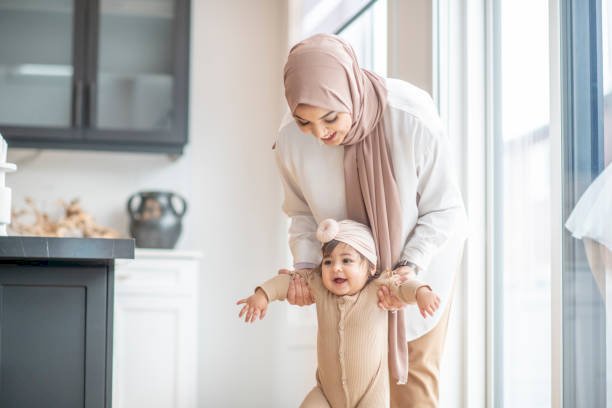



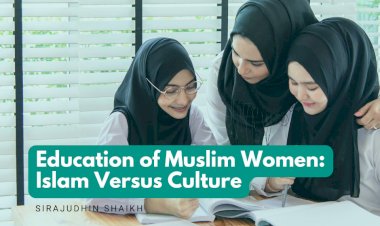
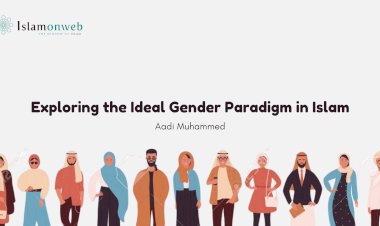

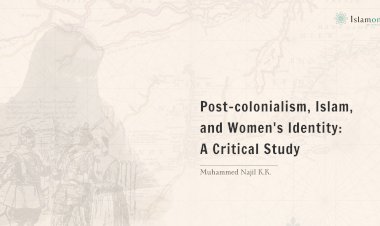
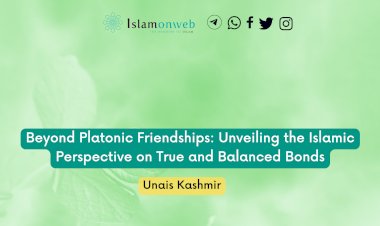
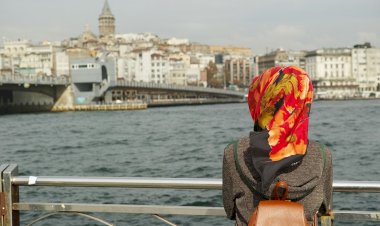














Leave A Comment